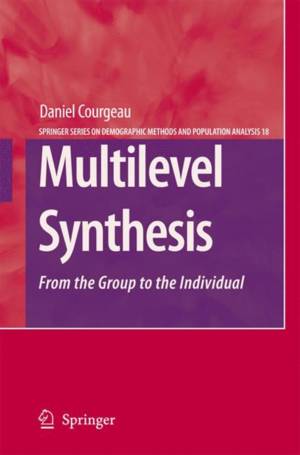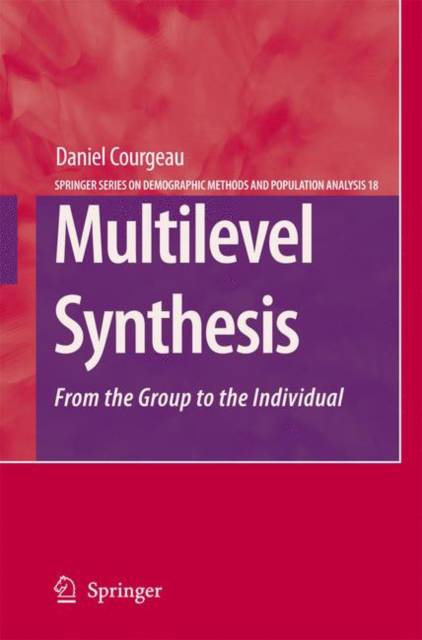
- Afhalen na 1 uur in een winkel met voorraad
- Gratis thuislevering in België vanaf € 30
- Ruim aanbod met 7 miljoen producten
- Afhalen na 1 uur in een winkel met voorraad
- Gratis thuislevering in België vanaf € 30
- Ruim aanbod met 7 miljoen producten
Zoeken
€ 167,95
+ 335 punten
Uitvoering
Omschrijving
This book aims to show how the multilevel approach successfully overcomes the divisions that emerged during the rise of the social sciences-- specifically, here, demography and statistics--from the seventeenth century to the present. We begin by examining how the approach connects different branches of the social sciences that conducted their observation and analysis at different levels or addressed different aspects of human complexity. Next, we describe in greater detail the statistical methods and techniques that it can use to simultaneously identify and measure the effects of the different levels examined on the characteristics studied. To introduce this work, we first provide an overview of the goal of social sciences, before discussing the various levels of aggregation at which they can operate. Social sciences start from the observation of a real-life experience and then seek to structure it according to different fields, which constitute the specific objects of study for each science. As a rule, these objects are defined independently of the scale and levels of aggregation that can be chosen to observe them. For example, the object of demography is the quantitative study of human populations, their variations, and their status, without specifying whether the level chosen is the individual, the family, the population of a town, or that of a country. Likewise, economics studies the production, distribution, and consumption of wealth, without specifying if the analysis is of an individual, a market, a firm or a nation.
Specificaties
Betrokkenen
- Auteur(s):
- Uitgeverij:
Inhoud
- Aantal bladzijden:
- 228
- Taal:
- Engels
- Reeks:
- Reeksnummer:
- nr. 18
Eigenschappen
- Productcode (EAN):
- 9781402056215
- Verschijningsdatum:
- 17/03/2007
- Uitvoering:
- Hardcover
- Formaat:
- Genaaid
- Afmetingen:
- 156 mm x 234 mm
- Gewicht:
- 539 g

Alleen bij Standaard Boekhandel
+ 335 punten op je klantenkaart van Standaard Boekhandel
Beoordelingen
We publiceren alleen reviews die voldoen aan de voorwaarden voor reviews. Bekijk onze voorwaarden voor reviews.







